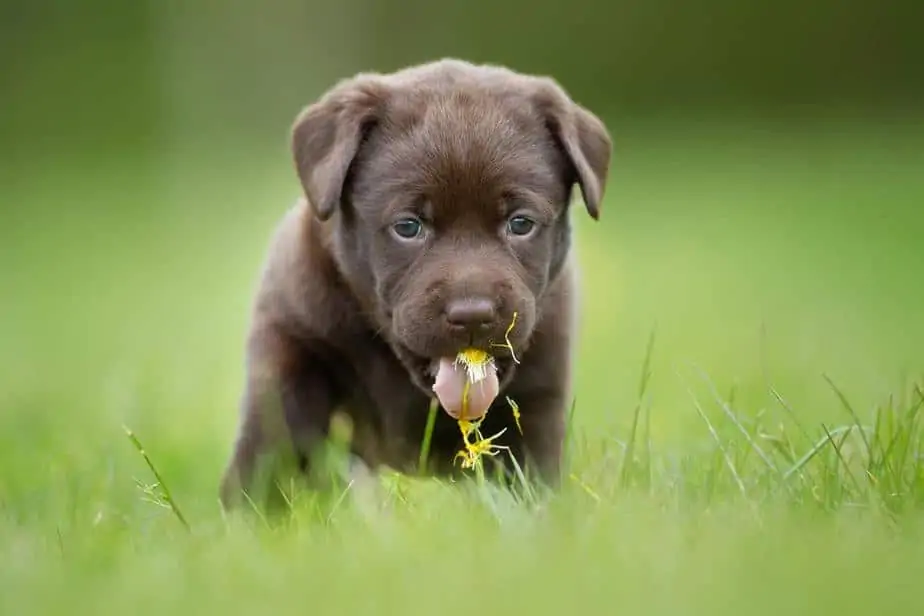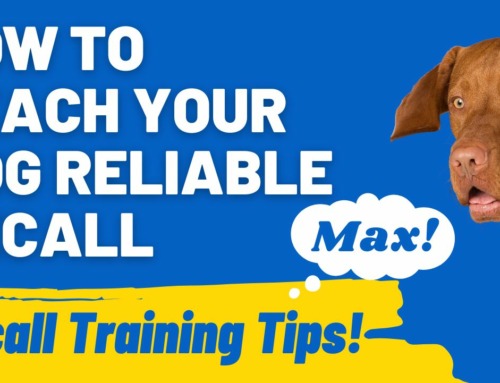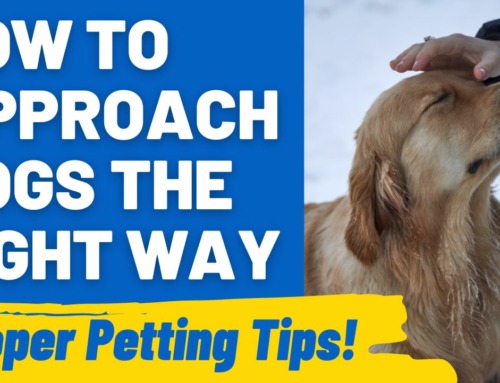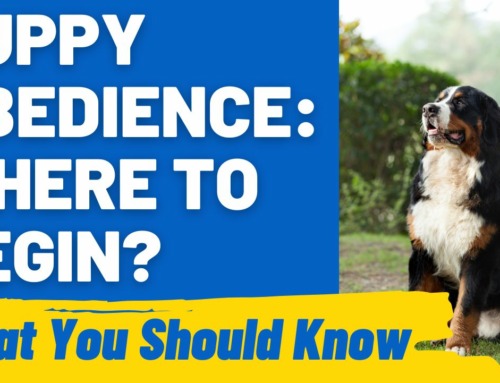If you’re a proud puppy parent, it’s natural to be concerned when you see them eating grass. You’ve probably heard that they only eat grass when they’re sick. The truth is your puppy will eat grass for many different reasons. Let’s delve into the subject and give you a better understanding of why your puppy is snacking on grass.
Myth: Puppies eat grass only when they’re sick.
Why Do They Eat Grass?
Puppies eat grass for a few possible reasons: they’re sick and need to vomit, they like the taste, they’re deficient in nutrients, they have anxiety, it’s instinctual.
Other possible reasons could include a lack of fiber, genetics, or as one study showed, that they’re mother ate grass while nursing.
Should You Be Worried?
First of all, you shouldn’t worry as it is common in puppies to graze your lawn from time to time. However, there are some thing to watch for. Let’s get into why they could be doing it.
You might also like to read our post, Is Scotts Thick’R Lawn Safe for Dogs, and Other Fertilizers?
Satisfy Nutritional Needs
Some veterinarians suggest that your puppy generally grazes to satisfy nutritional deficiencies. However, this can be debatable as dogs with even a healthy, well-balanced diet, have also been found to snack on grass from time-to-time.
It’s Tasty!
It’s possible your puppy just loves the taste of grass. Dogs have some peculiar tastes. Our family dog will eat a sock if it’s left on the ground!
If your puppy has a healthy diet, isn’t showing any signs of illness, and eats a lot of grass, it’s likely they just enjoy the taste of it.
Vomiting or Upset Stomach
Another common assumption is that dogs generally eat grass to ease stomach upsets. If your puppy consumes grass and vomits immediately afterward, then it could be the case.
However, this is a chicken and egg debate. Does your pup vomit because of eating the grass, or is the grass helping them to vomit because they feel ill?
Less than 25% of dogs will regularly vomit after eating grass, and so if your pup falls into this category then you will need to watch for other symptoms of illness such as diarrhea, lethargy, weight loss, and vomiting.
If your pup is a grass regurgitator, then it may be worth a check up just to make sure they’re diet is right and that there’s no underlying illnesses.
The bottom line is in most cases, your puppy will eat grass not because they are sick.
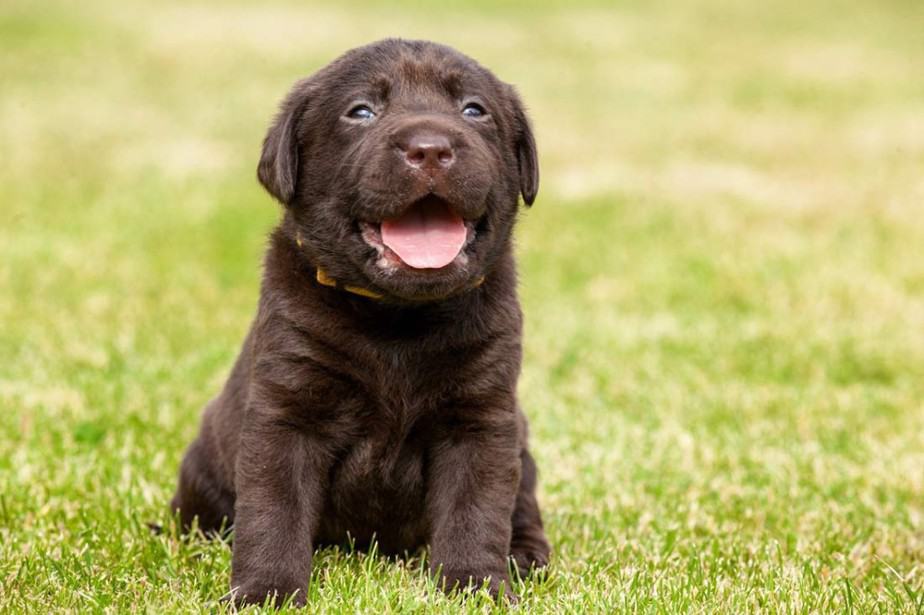
Fiber Intake for Puppies
In a 2007 case study in the Journal of Veterinary Medical Science, it was found that changing to a high-fiber diet stopped a miniature poodle from their frequent grass eating habits.
Although a one-off case, it does lead to questioning whether a puppy will eat grass to increase the fiber in their diet.
Look at the fiber content of your puppy’s food and check the back of the label for its fiber percentage.
One of the best nutritional and high-fiber foods on the market is Blue Buffalo Life Protection Formula Dry Food. Out of all the best rated puppy foods, it has the highest amount of fiber with 5%.
If your puppy is on wet food and is eating a lot of grass, you should definitely consider changing to the above high-fiber recommendation, or at least a dry food, as wet foods contain far less fiber.
If you are changing your puppy onto a new high-fiber diet, then you should take into account the transitional period.
Puppies have sensitive stomachs and a sudden change of their food can cause diarrhea and tummy upsets, that could just lead to more grass eating.
Here is a chart to help you when transferring your pup to a new food:
| Day | Old Food | New Food |
|---|---|---|
| 1-2 | 90% | 10% |
| 3-4 | 80% | 20% |
| 5-6 | 70% | 30% |
| 7-8 | 60% | 40% |
| 9-10 | 50% | 50% |
| 11-12 | 40% | 60% |
| 12-14 | 30% | 70% |
| 15-16 | 20% | 80% |
| 17-18 | 10% | 90% |
| 19-20 | – | 100% |
Psychological Needs
Whenever you leave your puppy home alone, they can begin to exhibit anxiety symptoms.
Although some pups tolerate being alone, others will get anxious and this can lead to chewing on grass, perhaps just as we humans chew our fingernails. It could help to calm them, or just be a distraction from their worries.
It’s speculated that some pups will even chew grass to act out and get attention from their owners. This is probably more likely if their owner gives them a command to stop eating grass when they’re doing it.
A pup without attention will get it anyway they can, even if it’s sometimes not that friendly.
Boredom
If your puppy is bored and isn’t getting enough mental stimulation, it can mean they will pass the time by chewing on some grass. This can lead to habitual lawn eating. Be sure to have lots of toys for your puppy that stimulate their mind.
It’s in the Milk!
A 2009 study in the Journal of Veterinary Behavior found puppies were more inclined to eat grass if their mothers did while nursing.
If your pup is an avid grass eater, then it could well be that their mother was too.
Instinctual
Wolves and other wild dogs like Coyotes, Foxes and Jackals have been observed eating grass. It could just be an innate and normal behavior for dogs, which has been ingrained in their DNA through thousands of years of evolution.
If we look at history, your pup’s ancestors did not eat kibble or canned food. Wild dogs hunt their prey and eat everything from nose to tail, including bones, meat, stomach contents, and internal organs.
When they eat the entire animal, they get a reasonably balanced diet, especially if the prey’s stomach is full of plants and grass, offering fiber to their diet.
Basically, dogs are not truly carnivores, and they are not precisely omnivores. Dogs can eat anything that can meet their dietary needs. In one study, stool samples of wolves are examined, showing that 47% of them eat grass.
In today’s age, dogs don’t have to hunt for their food; they get everything in their bowl. However, they still have their natural instincts, suppressed though they may be.
Even those dogs that are adequately fed on a commercial diet could eat grass as a reflection of their heritage.
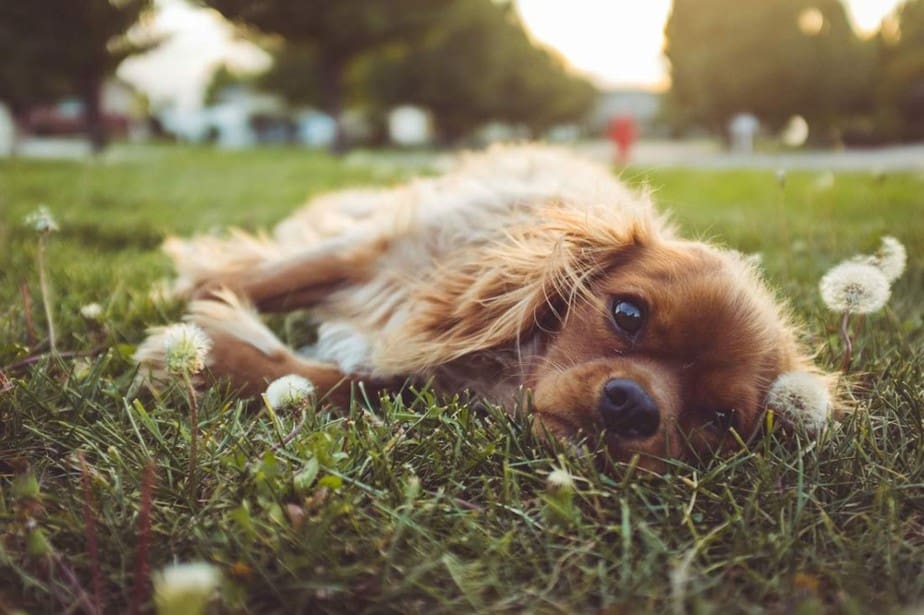
When is it a Concern?
Dog Whining
When dogs whine and suddenly start eating grass, it will most likely mean they have an upset stomach or abdominal discomfort.
Dogs also whine when they eat something toxic, have pancreatitis, or have a kidney infection.
Your puppy will most likely eat grass in this scenario to induce vomiting. If your pup eats and drinks normally, but keeps whining, you should get them to the vet as soon as possible. If bloat occurs, it can be life threatening.
Surgery
If your puppy eats so much grass their little tummies can’t process it, it can build up and become clumped together. If there’s enough of it, and it won’t pass, then they may require surgery to remove the obstruction.
Parasites
Intestinal parasites can be found anywhere and everywhere. One place is on the lawn, especially on a lawn in a dog park! This is a quick way for your pup to consume a parasite, and the best thing to do is to make sure your give your pup a monthly de-wormer.
Retching
If your puppy is retching and eating grass, this may be due to acid reflux, bloating, gastrointestinal problems, and bilious vomiting syndrome.
Watch their retching closely and if at all concerned, take them to the vet.
Pica
Does your puppy eat anything and everything? Pica is a condition in which your puppy will eat things that aren’t food items. If your pup eats socks, poop, dirt, rocks, garbage, plastic, metal and of course grass, then it’s likely your pup has Pica.
This condition can either be psychological or caused due to a lack of nutrients, and it can ultimately cause serious health ramifications.
If your puppy is exhibiting signs of Pica, then you should get them to their vet to discuss treatment options.
Nutrient deficiencies will be address, however, if you have no luck there in curing the condition, it’s best to consult a dog behaviorist.
Is Eating Grass Bad for my Puppy?
Pesticides
Eating grass in itself is not harmful. However, there’s always a possibility of your pup ingesting pesticides or herbicides from grass clippings, especially if it’s found away from your home or in an unfamiliar area.
It’s best to keep your pup away from eating grass if you have no knowledge if pesticides or chemicals have been used.
Allergens
Some dogs can be allergic to grass and if your pup is one of those dogs, it’s best to keep them away from eating it. If you notice swelling of facial features, such as eye lids, lips, or reddening of lips, then this could be the reason.
This will most likely be seasonal as pollen spreads over the grass. If you suspect this is the case for your pup, ensure you always keep your grass short, and brush their feet off before coming inside.
Also be sure to eliminate other possible allergens such as plastic food bowels, harsh house-hold chemicals, their shampoo, and of course their food.
As stated, though, if this seems to be a seasonal allergy, then it’s almost certainly the grass and pollen and their exposure should be kept to a minimum.
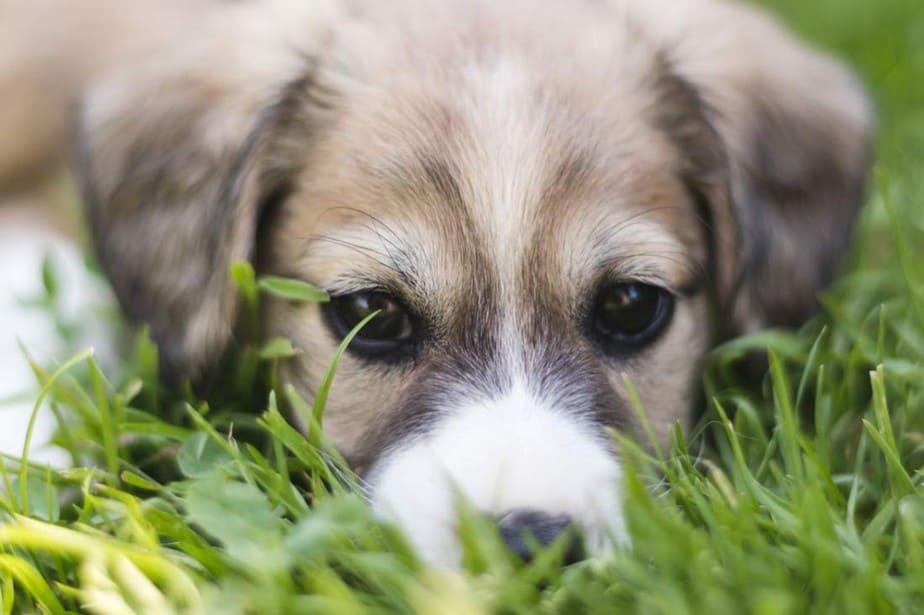
Should I Allow My Puppy to Eat Grass?
According to many vets, eating grass is normal behavior.
Dogs do not gain any nutritional value from eating grass, but there is also no harm, as long as pesticides, hazardous fertilizers, or herbicides have not been used.
You can protect your puppy’s health by not using any toxic products on your own lawn.
You can help your dog by growing herbs or grasses in your own garden, specifically for them to eat.
Here is a list of some herbs that can actually be beneficial to your dog’s diet:
- Rosemary
- Oregano
- Basil
- Peppermint
- Parsley
- Sage
- Thyme
Final Word
If your puppy has a well-balanced nutritious diet, then it’s most likely they eat grass because they enjoy it, or they have some innate desire to eat it.
If they’re ill and they’re eating it, then it won’t do them any more harm by eating it.
If your puppy ever shows any signs of serious illness, contact your vet immediately.

